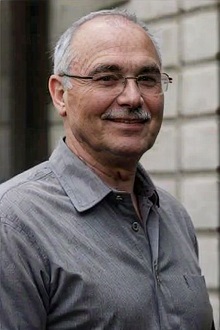| Sat. July 05, 2025 | |

|
|
|
Sudan has been embroiled in a brutal power struggle between rival military factions – the Sudanese Armed Forces (SAF) and the paramilitary Rapid Support Forces (RSF) – since April 2023. The war has displaced more than 11 million people, including 2.9 million who have fled into neighboring countries. Preliminary reports indicate that between 20 and 25 October, fighters from the paramilitary RSF launched major attacks across eastern parts of the El Gezirah state, indiscriminately shooting at civilians and committing sexual violence against women and girls, according to a UN report. Clementine Nkweta-Salami, UN Humanitarian Coordinator in Sudan, said in a statement on 26 October that she is “shocked and deeply appalled that human rights violations of the kind witnessed in Darfur last year – such as rape, targeted attacks, sexual violence, and mass killings – are being repeated in Al Jazirah state. These are atrocious crimes.” “Women, children, and the most vulnerable are bearing the brunt of a conflict that has already taken far too many lives,” she added. In August, UNICEF confirmed that “a catastrophic combination of conflict, displacement and humanitarian access constraints has resulted in famine in a camp sheltering hundreds of thousands of displaced people in Sudan’s North Darfur Region.” Sudan’s RSF killed at least 124 people in a village in El Gezira State, according to reports, in one of the deadliest incidents of an 18-month war and largest in a spate of attacks in the state. As noted in Foreign Policy, “The RSF was once known as the janjaweed, the notorious devils on horseback responsible for the worst atrocities of the 2003-2005 Darfur genocide, and for the past five months, the RSF and its allies have been laying siege to El Fasher, the capital of North Darfur.” Pro-democracy activists said the RSF has carried out revenge attacks in the farming state, killing and detaining civilians, with thousands displaced. Fighting erupted in April 2023 as a result of a power struggle between the RSF led by Mohamed Hamdan “Hemedti” Dagalo and army chief Abdel Fattah al-Burhan. Since then, the conflict has resulted in one of the worst global humanitarian crises, according to the UN. As highlighted by Genocide Watch, an organization that aims to raise awareness and influence public policy concerning genocide, the RSF has focused attacks on non-Arab groups, particularly targeting the Black African Masalit population, leading humanitarian organizations to label it an ongoing genocide. RSF forces are also accused of burning numerous villages belonging to the Zaghawa ethnic group. While local militias and armed factions allied with the SAF have managed to prevent the RSF from capturing the city, both sides have consistently attacked civilians and civilian infrastructure. Alarmingly, both the SAF and RSF face accusations of killing and injuring children and targeting schools and hospitals. The RSF has reportedly recruited children into hostilities, committing acts of rape and other forms of sexual violence against them. An October 2024 UN report, describes “multiple girls, as young as 13 years old, have been subjected to rape and sexual assault and that children have been detained.” Finding solutions to help Sudan’s civilians In response to restricted access across Sudan imposed by the SAF and RSF, alternative aid solutions must embrace adaptability, technology, and local empowerment to effectively support civilians. Community-based groups often have the flexibility to navigate restricted areas more freely than foreign aid workers, allowing for discreet and responsive distribution of aid. For this reason, international organizations should work closely with local NGOs and community leaders to channel resources, training, and medical supplies to trusted local actors. Regional hubs outside Sudan - potentially in Chad, South Sudan, and Ethiopia - should be used as strategic stockpiles for essential supplies. With decentralized operations, smaller and nimble delivery teams can shift routes quickly, responding to fluctuating security dynamics. Consideration should be given to unique delivery methods, such as motorbike couriers or river boats, which would address the needs of remote areas, reducing dependency on high-risk centralized convoys. In regions where physical access remains challenging, direct cash transfers via mobile banking can empower individuals to meet their own needs by purchasing supplies locally. This approach leverages Sudan’s mobile infrastructure to bypass physical supply lines, reducing exposure to checkpoints or armed groups. For extenuating circumstances, such as medical emergencies, it would be worth considering the deployment of drones, which can deliver essential medicines, vaccines, and even emergency food packages to communities cut off by the conflict, bypassing dangerous road-based obstacles. Meanwhile, cross-border support for Sudanese refugees in neighboring countries can alleviate pressure on Sudan’s internal resources while offering critical support to those fleeing the violence. By establishing well-resourced and welcoming centers along borders, organizations could provide vital services, such as food, medical care, and psychosocial support. Western governments must monitor the situation remotely through satellite imagery and open-source intelligence (OSINT). By gathering data on conflict hotspots, displaced populations, and resource needs, governments can share essential information with humanitarian organizations which can then prioritize resources to critical areas. At the same time, international advocacy for “safe zones” within Sudan may offer a haven for civilians, though this requires significant diplomatic effort to ensure compliance from all parties and potential international peacekeeping involvement. Conducting public campaigns may also mobilize global, helping to amplify these efforts and keep Sudan’s crisis in the public eye. This pressures governments worldwide to push for humanitarian access. A collective and resourceful approach on the part of Western nations and humanitarian organizations can help form a versatile, resilient response, enabling continued humanitarian efforts within Sudan despite the severe restrictions imposed by the warring sides. Dr. Gerald Walker, PhD, focuses on world politics and international diplomacy. On occasion, he is invited as a guest lecturer to speak on university campuses.
|
|
| Contact Us | About Us | Donate | Terms & Conditions |
|
All Rights Reserved. Copyright 2002 - 2025

